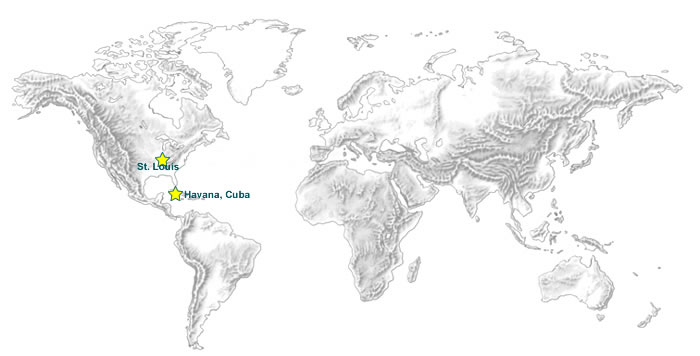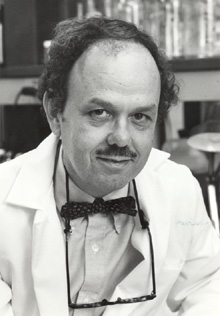Emil R. Unanue (b. 1934)
Noted immunologist Emil R. Unanue was born in Havana, Cuba in 1934. He received his bachelor of science degree in 1952 from the Institute of Secondary Education in Havana, and his medical degree in 1960 from the University of Havana School of Medicine.
After an internship in pathology at the Presbyterian University Hospital in Pittsburgh in the early 1960s, Unanue served as research fellow at the Scripps Clinic and Research Foundation in La Jolla, California and the National Institute for Medical Research in London. In 1970 he joined the faculty of the Harvard Medical School, where he became the Mallinckrodt Professor of Immunopathology in 1974. Unanue moved to St. Louis and the Washington University School of Medicine in 1985 as head of the department of Pathology and Immunology and as pathologist-in-chief of Barnes-Jewish Hospital. During his twenty-one year tenure, the immunology program at Washington University became one of the most innovative and productive centers in the world for immunological research.
Unanue currently serves as the Paul and Ellen Lacy Professor of Pathology at Washington University School of Medicine. He is internationally recognized as a leader in understanding how the immune system identifies foreign matter (antigen) and how immune system T cells respond to it. Unanue’s pioneering research into how immune recognition and attacks take place continues to help scientists gain insights that may one day be used to improve the body’s defenses against diseases and to disarm misdirected immune attacks that could lead to autoimmune conditions such as diabetes and arthritis.
Unanue is a recipient of the Albert Lasker Basic Medical Research Award, the Gairdner Foundation International Award and the Robert Koch Gold Medal from Germany. He is a member of the National Academy of Sciences, the American Academy of Arts and Sciences, and the Institute of Medicine.

Back to Biographies

